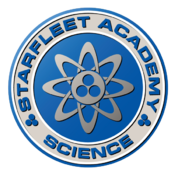Philosophy Department
The study of existence, knowledge, and ethics.
- PHIL100: Introduction to Philosophy
- Focuses on one philosophical topic at a very broad level, varies by term. Introduces general philosophical techniques, how to write philosophy papers, and how to exam arguments put forth by philosophers.
- PHIL140: Introduction to Ethics
- Focuses on one ethical topic at a very broad level, varies by term. Introduces general ethical frameworks and their histories. Students will analyze the ethical topic utilizing these various frameworks.
- PHIL150: Elementary Logic
- Introduces basic logic theory. Discusses theory of reasoning, methods for evaluating inferences, and how to formulate basic logical arguments.
- PHIL240: Applied Ethics
- A survey of various topics in ethics, looking more closely at various frameworks and how they apply to these topics. Topics will range from fictional moral dilemmas to real-world examples.
- PHIL250: Intermediate Logic
- Introduction to formal logic. Students will learn how to symbolize natural language arguments and determine their validity and soundness. This course focuses on two formal logic systems: a prevailing human system and a prevailing Vulcan one.
- PHIL300: Philosophical Methods of Writing
- An in-depth focus on philosophical writing, argumentation, and research. Students will read a survey of related philosophical works and write responses to these works. Students will receive comprehensive feedback on writing technique from a graduate student.
- PHIL370: Philosophy of Religion
- This course will focus on the philosophies behind various religions represented in the Federation. Students will learn arguments for the existence of the divine as well as arguments in opposition.
- PHIL401: Topics in Philosophical History
- Focuses on one historical philosopher, or work of philosopher, in-depth, varies by term. Students will learn about one important philosopher or work in philosopher, engaging with the material and presenting responses to the topic in question.
|

